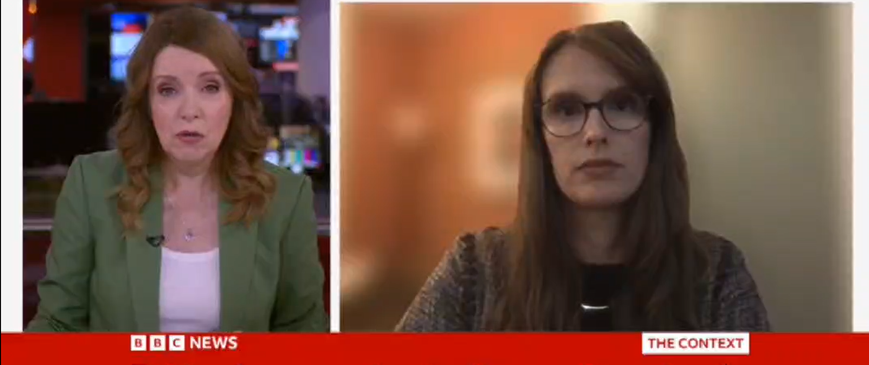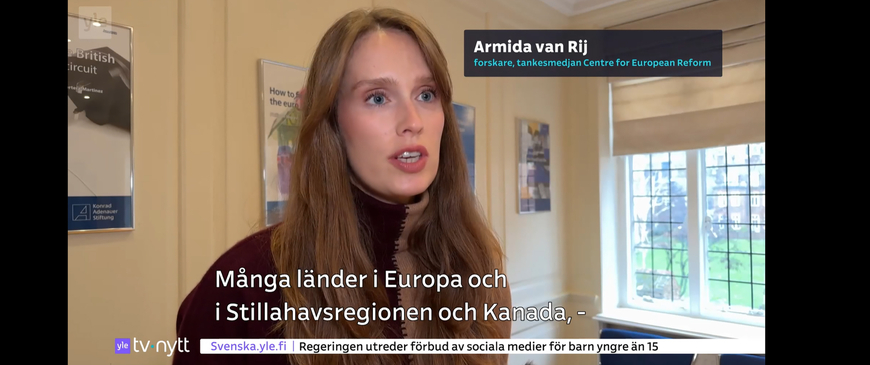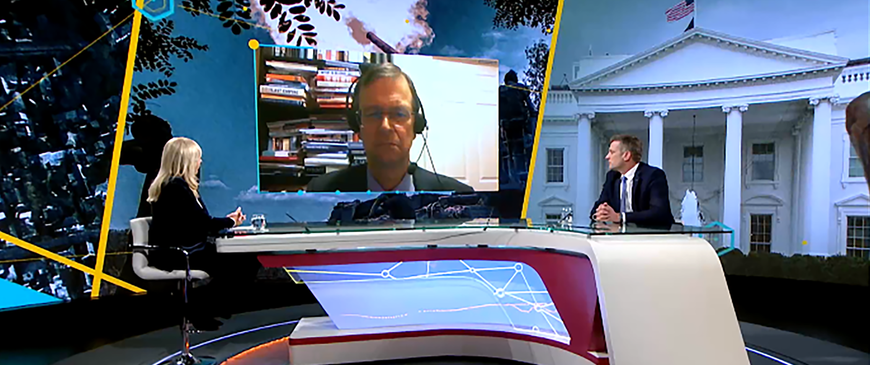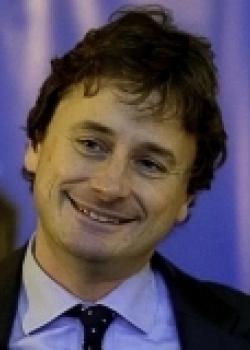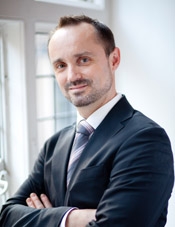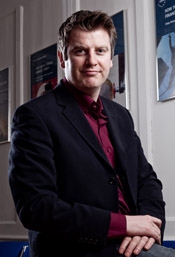Press
Ideas for future EU hit instant headwind
20 September 2012
European Voice
Charles Grant of the CER, was sceptical about the prospect of changes. He said that there was "no enthusiasm for treaty change or institutional reform" in France.
Germany's Wolfgang Schäuble at 70 – still at heart of efforts to save eurozone
20 September 2012
The Guardian
Schäuble's mantra has consistently been that what's good for Europe is good for Germany... "He's an old-fashioned, very serious European federalist," said Katinka Barysch, a German economist at the CER in London.
Merkel turns to ex-mentor Kohl to sell Europe to Germans
20 September 2012
Reuters
"There was an initial desire (in Europe) to punish Greece rather than help it," said Philip Whyte of the CER. "Germany played a big role in that and the benefits of Germany's euro zone membership weren't highlighted much."
As doubts grow about a BAE-EADS merger, could it prove a danger to national interests?
19 September 2012
City A.M
The fear that the merger might pose a threat to national security is without foundation. How? Would the German or French bits of the company withhold supplies to the UK armed forces on political grounds?
11 European foreign ministers call for greater integration
18 September 2012
The New York Times
"Germany's renewal of the concept of political union reflects the fact that the German political class has become more integrationist as the euro crisis has progressed," said Charles Grant, director of the CER.
Germany slowly comes to terms with sending its armed forces abroad
18 September 2012
The Guardian
"Afghanistan turned out a lot less safe than they thought it was going to be, but the Germans toughed it out, changed their rules of engagement, and fired back," said Tomas Valasek, the director of foreign policy and defence at the Centre for European Reform.
Stalled rally puts pressure on Spain
18 September 2012
The Wall Street Journal
Simon Tilford, chief economist at the CER, said the Spanish government was right to consider the bailout request with caution. "If one of the conditions is a further tightening of fiscal policy, then the risk is that that will depress the Spanish economy even further, and they won't be able to meet the terms of the bailout," he said.
BAE-EADS merger would advance Europe's military goals
16 September 2012
Reuters
"In the broadest terms, this merger does enact what many European governments... have been saying for a long time - that in order for the European defense industry to remain competitive in the long term it needs to consolidate," said Clara Marina O'Donnell of the CER.
Germany's savers feel resentment and guilt over pressure to end euro crisis
16 September 2012
The Guardian
German taxpayers stump up a "solidarity surcharge" of 5.5% of income tax to fund the hefty costs of unification in an arrangement due to last until 2019. "East Germany might well need another trillion," said Katinka Barysch, a German economist at the CER.
Illegal immigration emerges as new crisis for Greece - and EU
15 September 2012
The Wall Street Journal
Last year, some 351,000 people were in the EU illegally by overstaying their visas... "The attention needs to be shifted to that too," said Hugo Brady of the CER. "Greece isn't the cause of illegal immigration, it's a serious patch of vulnerability."
German court rejects calls to block eurozone rescue fund
13 September 2012
USA Today
Simon Tilford, chief economist at the CER said the ruling's most interesting aspects were the conditions attached. "It's unlikely that the German government would vote to increase the amount of money that it can commit to the fund," he said.
Defence sector plans for hard times ahead
13 September 2012
Financial Times
"Faced with the lack of demand in Europe, the name of the game for many European defence companies has been to try and get into other markets like the US," says Clara Marina O’Donnell of the CER.
London sees commercial sense of alliance
12 September 2012
Financial Times
"One of the interesting questions is what this means for the much-vaunted Franco-British defence relationship," said Clara Marina O’Donnell of the Centre for European Reform.
Spanish leader yet to agree on bailout conditions
11 September 2012
Marketplace
Refusing to go along with the austerity measures could jeapordize other EU governments support for the bailout program, according to Simon Tilford of the CER. If that happened, "the ECB will not be allowed to buy the debt," Tilford said.
El 'eje del Norte' afloja la presión
09 September 2012
El Pais
"No hay duda de que los años de crisis [economica] han tenido un impacto primera vez, Alemania está en una posición abiertamente dominante", comenta Simon Tilford, economista del Centre for European Reform.
European bank move could help economy
07 September 2012
Voice of America
"This is an argument about money, said Simon Tilford of the CER. "Who pays for misallocated capital, profligate borrowers or irresponsible lenders? The only way of addressing this kind of problem is by both sides taking a hit. And so far the full burden of adjustment is being imposed on the debtors."
In launching cases, Commission shows it plays by rules
06 September 2012
The Wall Street Journal
"It's commendable that the commission is prepared to stand up for little Eastern European countries at the risk of hurting relations with Russia," said Charles Grant director of the Centre for European Reform, a London-based think-tank.
Economist Sinn rattles Merkel laboring to save euro
06 September 2012
Bloomberg Businessweek
"Economists like Hans-Werner Sinn have contributed to a climate in which the German government has felt constrained in what it can agree at a eurozone level," says Simon Tilford, chief economist at the Centre for European Reform in London.
Weidmann isolated as ECB plan approved
06 September 2012
Financial Times
"One question is whether the benefits from the bond buying are going to be enough to offset the damage inflicted by the conditionality attached," said Simon Tilford of the CER think-tank, reflecting fears that swingeing spending cuts and tax rises may kill off anaemic economic growth.
Draghis plan vil købe tid, men ikke redde euroen
06 September 2012
Information
"Det er kun en effektiv bagstopper, hvis betingelserne, der opstilles for landene, giver mening. Det er fejlen ved planen. Nøglespørgsmålet vil være, om fordelene ved opkøb af statsobligationer vil være store nok til at opveje skaderne fra de strukturelle reformprogrammer. Hvis ikke, så kan programmet vise sig at virke imod hensigten. Jeg tror ikke på, at den vil være en game changer," siger cheføkonom Simon Tilford fra tænketanken CER i London til Information.

